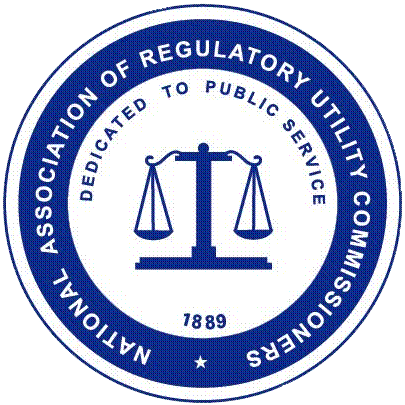NARUC on the Infrastructure Bill: ‘A’ for Effort, ‘C-’ for Utility Content

Weak on Transmission Siting and Broadband Provisions
WASHINGTON — The bipartisan infrastructure bill passed by the United States Senate represents a landmark piece of legislation for the nation. Although the effort put forth to develop a comprehensive package is laudable, the final bill does not include key provisions advocated for by the National Association of Regulatory Utility Commissioners, the trade association that represents state utility regulators in the United States and its territories.
“We understand and certainly appreciate the importance of protecting and improving infrastructure,” said NARUC President Paul Kjellander. “In fact, infrastructure was a yearlong focus recently and we have a committee dedicated to critical infrastructure. However, this bill could have achieved more in terms of energy and utility provisions.
“In short, we support the bill’s revised tax treatment for contributions in aid of construction and we are pleased by the inclusion of the pilot low-income water program. Unfortunately, the bill includes a transmission siting provision that NARUC strongly opposes and there are key aspects of the broadband benefit program that we do not support.”
Concerning transmission siting, the bill contains a provision that pre-empts state siting jurisdiction and eminent domain powers as they relate to siting electric transmission projects. The legislation provides the Federal Energy Regulatory Commission with siting jurisdiction and federal eminent domain powers in Department of Energy-established “national interest electric transmission corridors” when states fail to approve a project within one year. NARUC interprets this new provision as an ultimatum to states: Approve the project or FERC will approve it for you.
The public interest would be better served by Congress determining – through independent analysis or study – whether state regulatory action or inaction is actually preventing electric transmission lines from being sited and constructed. As NARUC has stated previously, the major impediments are, in fact, public opposition to transmission facilities, federal permitting issues, economic viability, cost of the projects and cost allocation.
NARUC opposes, and is deeply troubled by, this unnecessary pre-emption of state jurisdiction. While Congress has been considering this draconian pre-emption of state jurisdiction, NARUC worked with its federal counterparts at FERC to establish the first-ever federal-state task force on electric transmission, the mission of which is to collaboratively resolve the issues collectively identified as the greater impediments to building transmission projects.
“This effort is a model of cooperative federalism, which is really what Congress should be striving for, instead of undermining state authority,” said NARUC Executive Director Greg White. “One undeniable thing that state regulatory commissions do is assure that the affected citizens receive due process. This legislation would remove the affected communities’ and landowners’ right to due process. Everyone should be deeply troubled by that prospect.”
The new broadband benefit ignores critical protections for consumers and for the program itself by extending the partial bypass of the Eligible Telecommunication Carrier designation process, which also bypasses many states that are both interested in and able to protect program beneficiaries. Unfortunately, the industry voices that aimed to avoid oversight carried more weight than NARUC’s concern for sound, reasonable protections for the public.
NARUC’s policy staff will continue to unpack the details of the bill and help state utility regulators understand relevant aspects of the legislation.
About NARUC
NARUC is a non-profit organization founded in 1889 whose members include the governmental agencies that are engaged in the regulation of utilities and carriers in the fifty states, the District of Columbia, Puerto Rico and the Virgin Islands. NARUC’s member agencies regulate telecommunications, energy, and water utilities. NARUC represents the interests of state public utility commissions before the three branches of the federal government


